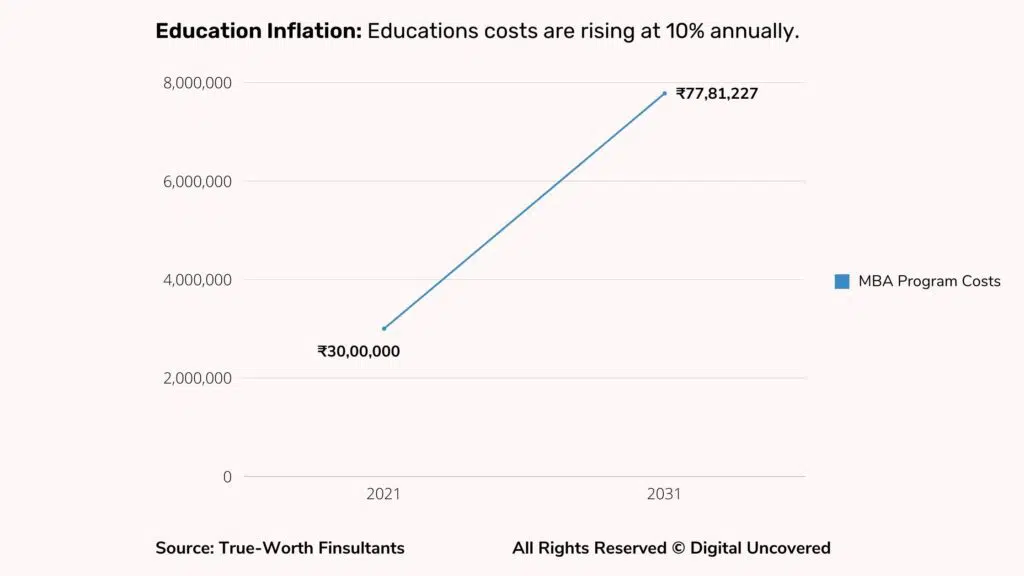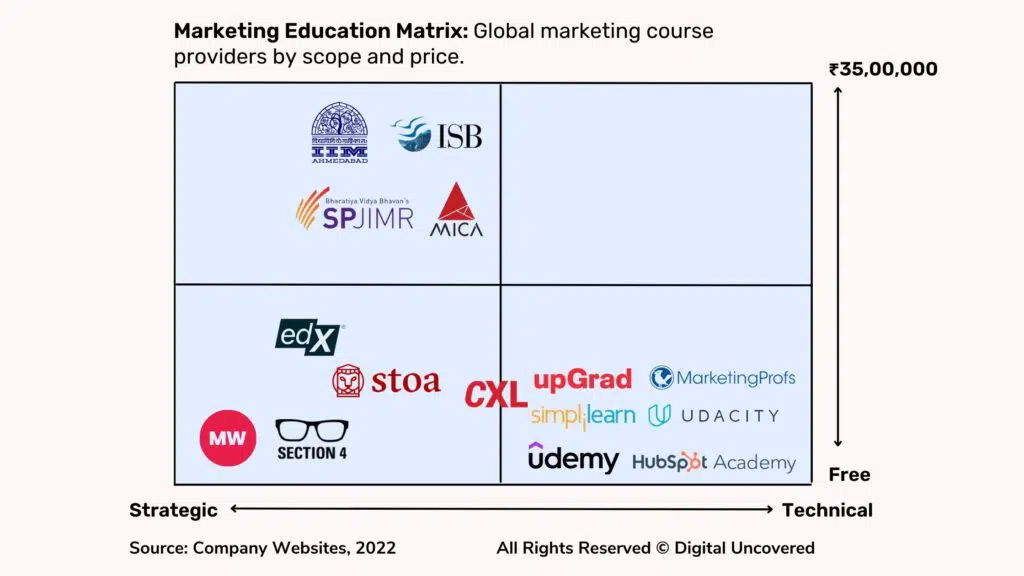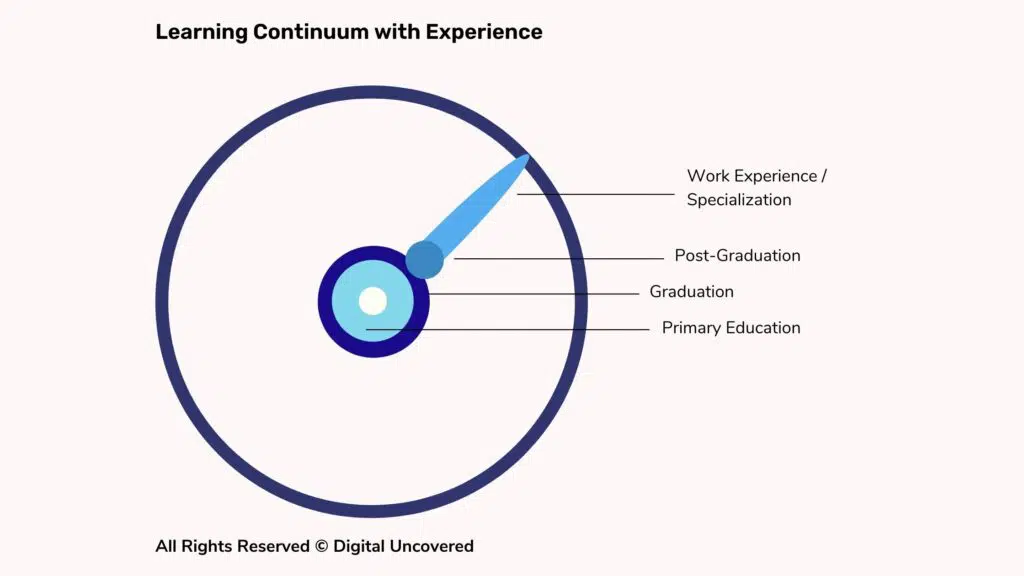If I asked where I should go to get a well-rounded marketing education in India, where would you point me? The most likely response would be a combination of long-term business programs and short-term technical training. While the list of courses may change, I’m confident you won’t find a single institution that can provide both.
When it comes to marketing education, there is no clear authority or yardstick for determining what is valuable and what is rubbish in the marketplace. If you’re anything like me, you would have learned the vast majority of your skills on the job, via side projects, or through trial and error.
If we survey the market to understand the state of marketing education in India, tuition pricing is a crucial data point influencing the change. Over the years, education inflation has averaged between 10-12%, more than double the home inflation rate. If the cost of an MBA program at IIM Bangalore was 13 lakhs a decade ago, it now costs more than Rs 23 lakhs for a two-year program. If the current trend continues, an MBA program could cost well over Rs 77 lakhs by 2031.

For those in the latter stages of their careers, the fact is that the vast majority of options have gotten more expensive and have become harder to find. Despite the accessibility of the internet, tuition prices have only risen in recent years. Tuitions have outpaced inflation by over 100%, with no meaningful innovation to justify the increase.
State of Marketing Education in India
Education was always considered the right passage to employment, community, and an economic future. That explains why even when the cost outweighs the benefits, it is not treated like any other product. Edtech has covered the void created by business schools by taking the mantle of imparting technical training over the last few years.
With technology coming to the forefront of imparting education in the wake of the pandemic, Edtech startups raised $4.7 Bn in 2021. But with more students opting for technical training over business education, it is creating an imbalance in the market.
So what does the current landscape of marketing education in India look like? To understand the space, you will have to leave the university gates and look at organizations that are trying to combine business education with short-term technical training. These are mostly startups or offshoots of major universities.
There are two gaps in the marketing education landscape. Most of the short-term technical hands-on training in digital marketing and marketing technology comes from short course providers, and business education, which focuses on strategy, is left to universities.

Beginner education products are focused on technical skills across siloed disciplines. Brands like HubSpot and Udemy are offer low-cost courses, even some of them offer for free. These products can give you a good grounding in a specific corner of marketing, like SEO, Performance Marketing, or Analytics. Many such low-cost offerings also come from technology providers looking to reskill their customers to retain them for a longer time.
This results in a very tactical understanding at the outset of a person’s career, which aligns with the kind of work they do when they are starting out but does not provide them with a business strategy understanding as they grow. It explains why a large number of marketers are simply obsessed with tactics and struggle when it comes to creating a real strategy to drive the business forward.
By asking 20-years olds to specialize, we’re creating a generation of marketers who will have tunnel vision. While managing marketing operations and tactics has enormous value, one should avoid becoming a lever operator. On the other hand, senior and executive education providers are your answer if you are looking for a grounding in strategic thinking. Brands like MICA, IIMs, and ISB lead the charge by offering courses ranging from ₹20,00,000 to ₹30,00,000. While others like MiniMBA, Section4, and Stoa offer condensed versions at lower price points ranging from ₹75,000 to ₹2,50,000.
For a well-rounded marketing education, you will have to balance strategic thinking and technical skills. These skills cannot be relegated to the corner office and should be available to people throughout their careers. There are very few institutions in the current marketing education landscape that maintain a healthy balance between strategic and technical skills.
What education industry needs to change?
Even when you’ve all the skills for the role you’re hired for, you are traversing through this learning continuum. Chances are, whatever you learn will get outdated in 3-4 years, and you will have to start again from scratch. But what will differentiate you from the rest will be your ability to unlearn. It also means making smarter career choices and learning things that nobody tells you about.

The education industry must ultimately realize that we need practitioners, leaders, and executives who have a balanced understanding of both technology and strategy. But the onus to make this happens also resides with us. We ultimately choose which programs to opt for and how we choose to learn to be a well-rounded marketer. When this happens, we’ll see better campaigns, better experiences, and more successful digital transformation initiatives.
